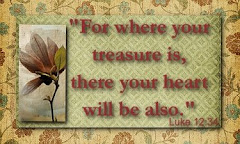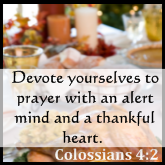
"While they were there, the time came for the baby to be born, and she gave birth to her firstborn, a son. She wrapped him in cloths and placed him in a manger, because there was no room for them in the inn." ~ Luke 2:6-7 (NIV)
a) an inhabited place, as a city, village, district
b) a place (passage) in a book
2) metaph.
a) the condition or station held by one in any company or assembly
b) opportunity, power, occasion for acting
There were no reservations at The Ritz. Did they stay with family? Did an innkeeper offer them lodging in a barn? Perhaps there was no opportunity or power, occasion to act for anyone, innkeeper or otherwise, to offer them space. Perhaps they simply lodged where they could. Wherever they stayed, we know it wasn't a fancy hotel or even a quaint Bed and Breakfast.
Excitement
After they arrived, the Savior was born, wrapped in cloths His mother had probably packed for the anticipated birth of the Son.
The Greek word for wrapped in cloths is sparganoō, which means:
1) to wrap in swaddling clothes
a) of an infant just born
How carefully it's planned what outfit they will wear home from the hospital these days. I wonder during her visit with Elizabeth if they began lovingly sewing clothes for their babies, still in the womb, or how many late nights Mary stayed up, lovingly stitching sized 0-3 months tiny outfits and blankets, to swaddle her Son, her Savior, as any proud mother would do. There would be no spare rags for this Baby Boy.
Was it before or after they registered together as a family that our precious Savior was born? How long was Mary's recovery period? Was her birth difficult or easy? What prompted her labor? The long ride or walk there or did the time just simply come?
"And there were shepherds living out in the fields nearby, keeping watch over their flocks at night. An angel of the Lord appeared to them, and the glory of the Lord shone around them, and they were terrified. But the angel said to them, "Do not be afraid. I bring you good news of great joy that will be for all the people. Today in the town of David a Savior has been born to you; he is Christ the Lord. This will be a sign to you: You will find a baby wrapped in cloths and lying in a manger." ~ Luke 2:8-12 (NIV)
Can you imagine the rush to see Him? The long awaited Savior was born into the world. The baby was lying in a manger. I have seen people stampede toward the nursery to get that first glimpse of the precious little one just born. They want to see who he looks like, want to count fingers and toes. They want to see her hair, or lack thereof. This I know. I have led those stampedes when grandchildren and nephews were born!
"When the angels had left them and gone into heaven, the shepherds said to one another, "Let's go to Bethlehem and see this thing that has happened, which the Lord has told us about." ~ Luke 2:15 (NIV)
The shepherds had waited more than a short nine months to see this baby. They lived merely minutes from the location of where they could see the Savior anticipated for centuries!
"For to us a child is born, to us a son is given, and the government will be on his shoulders. And he will be called Wonderful Counselor, Mighty God, Everlasting Father, Prince of Peace." ~ Isaiah 9:6 (NIV)
What would the Son charged with the government on His shoulders look like? Who were His parents? Would He have a glow about Him?
The Greek word for hurry is speudō, which means:
1) to haste, make haste
2) to desire earnestly
When my grandsons were born, I snapped pictures through the nursery window the moment I had the opportunity and sent their pictures and weights, heights, birth time, every detail, out into cell phone land. I was excited. Imagine the excitement of the shepherds!
The Savior at long last had arrived. (Oh, to be there! To be a shepherd the night the angels appeared!) And as quickly as they arrived, they knew. They saw the Word in the flesh! Their only method of announcing the birth of the Holy Child was to spread the word.
The Greek word for the phrase spread the word is diagnōrizō, which means:
1) to publish abroad, make known thoroughly
2) to discriminate
They shared with everyone they could every detail they knew, what they had heard and seen for themselves!
Things Pondered
"But Mary treasured up all these things and pondered them in her heart." ~ Luke 2:19 (NIV)
Mary had other things on her mind. She must have memorized every detail of her Son, the Savior, the Messiah. Many arrived to see the long-awaited Messiah, but Mary probably sat back in a chair or leaned against a bale of hay, pondering the wonder of it all. The Greek word for treasured is syntēreō, which means:
1) to preserve (a thing from perishing or being lost)
2) to keep within one's self, keep in mind (a thing, lest it be forgotten)
There were no digital cameras or video cameras back then. The mother who had been blessed to carry the Wonderful Counselor, Mighty God, Everlasting Father, Prince of Peace, had to have been given long pause to take it all in, perhaps remembering what seemed like a dream when the angel of the Lord told her she would carry the Son of the Most High God, reassuring her nothing was impossible with Him.
I'm sure she treasured the sweet sweet smell of the Savior Child as she held Him to her breast, and then the arrival of all who came and went after seeing the Babe lying in a manger, as well as the gentle care she must have received from those attending her birth - all thoughts we won't know unless she chooses to share them with us in Heaven.
Sadness
"And being found in appearance as a man, he humbled himself and became obedient to death - even death on a cross!" ~ Philippians 2:8 (NIV)
Have you ever had the privilege to be at the bedside of someone who is slipping away into death? My husband's best friend died in 2003 and Steve and I held his hand as he died. Stripped of the things which sustained his life, a tough choice to be made by his family and Steve (whom they considered family), Todd was about as humble when he died as I ever knew anyone to be. It was a privilege to be there with him when he left his body and went home to be with the Lord. Death is about the most humbling thing there is to me.
And our precious Savior, placed in a lowly manger, whose birth was announced to shepherds guarding their flocks one night, humbled Himself to die for all mankind.
The Greek word for humble is tapeinoō, which means:
1) to make low, bring low
a) to level, reduce to a plain
b) metaph. to bring into a humble condition, reduce to meaner circumstances
1) to assign a lower rank or place to
2) to abase
3) to be ranked below others who are honoured or rewarded
4) to humble or abase myself by humble living
c) to lower, depress
1) of one's soul bring down one's pride
2) to have a modest opinion of one's self
3) to behave in an unassuming manner
4) devoid of all haughtiness
As Mary watched the humble Word made flesh die, she couldn't hold His hand and have one of her other sons sit at the foot of the Cross, singing Amazing Grace as she told Him of the treasured memories of His humble birth, a short thirty-three years before.
Rejoicing
"Jesus said to her, "I am the resurrection and the life. He who believes in me will live, even though he dies; and whoever lives and believes in me will never die. Do you believe this?" ~ John 11:25-26 (NIV)
When Todd died, we left the room while the heart/lung transplant team removed the equipment we had seen for more than six months. We returned to the room and Todd was still there in body, but not spirit. We knew without a doubt he was with Jesus.
"We are confident, I say, and would prefer to be away from the body and at home with the Lord." ~ 2 Corinthians 5:8 (NIV)
When Jesus talked to Martha about her own brother's death, He encouraged her with the hope of His own resurrection.
The Greek word for resurrection is anastasis, which means:
1) a raising up, rising (e.g. from a seat)
2) a rising from the dead
a) that of Christ
b) that of all men at the end of this present age
c) the resurrection of certain ones history who were restored to life (Heb. 11:35)
The Gift
As Mary treasured the birth, the death and the resurrection of the Savior, may we treasure it, too.
The gift of Jesus was not simply given to Mary or to shepherds long ago. He was given to us for a purpose. Life with Him.
"For God so loved the world that he gave his one and only Son, that whoever believes in him shall not perish but have eternal life." John 3:16 (NIV)
L - Love - "This is how God showed his love among us: He sent his one and only Son into the world that we might live through him." ~ 1 John 4:9 (NIV)
I - Intervention - "This is love: not that we loved God, but that he loved us and sent his Son as an atoning sacrifice for our sins." ~ 1 John 4:10 (NIV)
F - Forgiveness - "Therefore, my brothers, I want you to know that through Jesus the forgiveness of sins is proclaimed to you." ~ Acts 13:38 (NIV)
E - Eternal Life - "For my Father's will is that everyone who looks to the Son and believes in him shall have eternal life, and I will raise him up at the last day." ~ John 6:40 (NIV)







 Nolan & Liam
Nolan & Liam Nolan
Nolan Liam
Liam





 Besides prayer, we need to check our self-control meter. We should temper our words and lack of self-control in this area if we are struggling. Most of all, we need to purpose in our hearts that each and every one of the words we speak will glorify God and bring Him honor, not discredit Him to others who are watching and listening to the example we set.
Besides prayer, we need to check our self-control meter. We should temper our words and lack of self-control in this area if we are struggling. Most of all, we need to purpose in our hearts that each and every one of the words we speak will glorify God and bring Him honor, not discredit Him to others who are watching and listening to the example we set. 




















